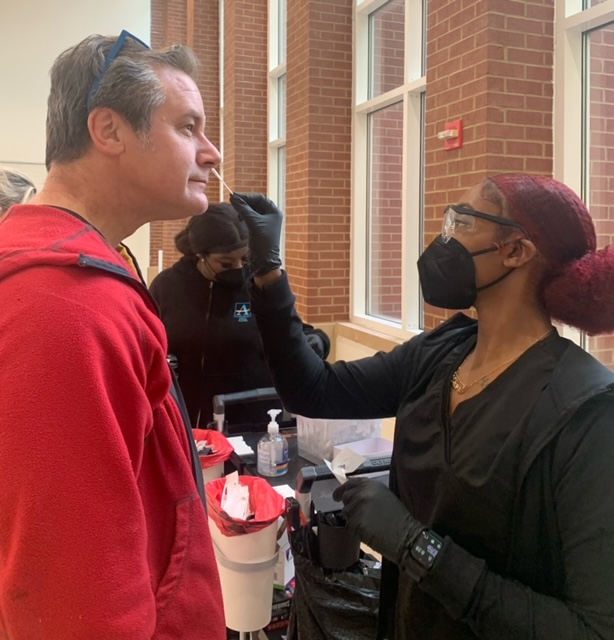Continued surveillance testing wastes money, ineffective
Due to a decrease in participation and cases of Covid-19, surveillance testing should be discontinued to put funds to better use.
October 18, 2022
COVID-19 surveillance testing was first implemented at Midtown in the fall of 2021, when students returned to in-person learning. Despite a substantial drop in cases since last year, the program has continued into the 2022-2023 school year. This continuation of surveillance testing is not only a waste of resources, but is also ineffective.
When testing originally began last fall, COVID-19 cases were spiking in Atlanta. During that time, a weeklymoving average of over 5,000 new cases per day was recorded for over a month from mid August to mid September according to the Georgia Department of Public Health. However, this fall, cases are far from that. In fact, a seven day moving average of over 4,000 new cases per day has only happened once since the beginning of this August. Such a significant drop in cases negates the need for surveillance testing.
Another difference from last year is how testing is being conducted. Last year, students were pulled out of their first period class to be tested on specified testing days. By creating designated time during the day, it was ensured that each student would have easy access to testing. That practice was reversed this year. Now, the responsibility falls on students to get themselves tested in the morning, before the first bell. This change makes testing less accessible to students in general, and creates issues for students who need to get breakfast in the time before first period. With testing occupying the same time window as breakfast, students who eat breakfast at school are forced to choose between getting tested and getting a meal. Without the same accessibility that was offered last school year, surveillance testing is put further out of reach for many students.
Despite its inaccessibility, some might argue that continued surveillance testing helps keep students safe. In actuality, the additional amount of protection surveillance testing provides is negligible. The efficacy of surveillance testing depends on the portion of Midtown’s students and teachers who participate. A significantly lower participation rate compared to last year decreases the efficacy, and by extension, the added protection of testing.
The importance of this small amount of protection is also reduced by high vaccination rates among students. The majority of students at Midtown have COVID-19 vaccines, and as of January 2022, 64% of Midtown students were vaccinated. As a result of this high vaccination rate, COVID-19 is less likely to spread between students at Midtown. This, in itself, decreases the need for testing.
Not only is testing at Midtown under-used, but it also comes with an extreme cost to Atlanta Public Schools.To provide testing, APS contracts Viral Solutions, a biomedical company that specializes in COVID-19 testing. In 2021, APS paid Viral Solutions more than seven million dollars to provide 371,830 tests. While that may have been a steep, but necessary, expense six months ago, it certainly isn’t now.
While it may grant students a small amount of protection from COVID-19, the program is ultimately under-utilized and ineffective. In order to better make use of its resources, APS should terminate its surveillance testing program.







